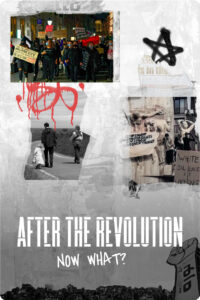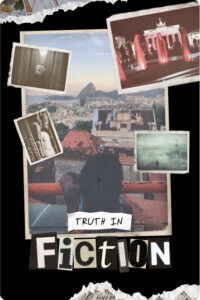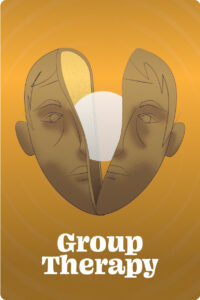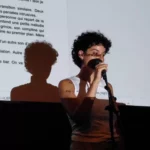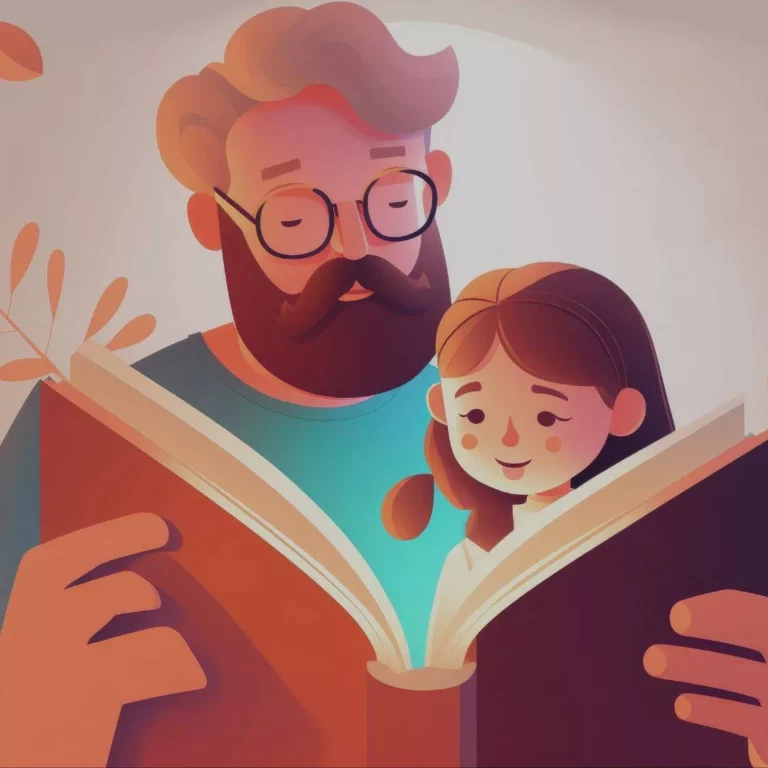
4/10/2023
You will find below the transcript of the podcast translated into English. Translator: Anna Magavern
When I couldn’t sleep as a child, my father would come into my room.
Sitting on the edge of the bed, he would sing a song in
A.
R.
A.
B.
I.
C.
Arabic.
I didn’t understand much.
I inherited a language emptied of its substance.
It doesn’t matter that I don’t really know this language,
above all, it’s the language of a beloved father,
if al arabia means nothing to me, ch-arabia, nonsense, will do.
A for Abandoned
First letter of the alphabet, there are more of them in Arabic than in French, maybe 10, though I’m not really sure. Makes me think of the town where I grew up, a town I feel nothing for: Argenteuil.
Ya laylatan sahlanafiha
He runs his hand through my hair,
gently,
tenderly,
from the roots to the ends.
He speaks but no meaning reaches me,
I don’t know where the seams are in this language,
so I transcribe, hoping
that genetics will help somehow,
but not now.
Right now, it’s not use.
I say seams because I find it impossible
to tell where one word ends and another begins.
Each forms a sonic continuity with the rest,
speech is an enormous undulating mass
that flows away from me.
The only words that I know are the affectionate ones,
the names that my father gives me: binti, habiba.
If he had taught me Arabic,
things would have been different,
I would have been complete.
This absence explains all the failures that followed,
my inability to learn history lessons,
my broken connections with distant relatives,
my discomfort during video calls with family there
Obviously, it’s all ruined,
because whatever I know or don’t know,
the problem is that I wasn’t taught.
Ya laylatan shtamanafiha
Legs curled under the sheets,
I watch his face faintly lit by the lamp
and the green walls behind him.
He strokes my hair, from the roots to the ends.
R for Radically
A letter close to the end of the alphabet,
between the “Q” and the “S” I like it a lot
because the sound it makes perfectly scratches the back of the palate
and the inside of the skull.
First letter of my father’s first name,
which means “wise one,”
he always has been,
apart from when he speeds.
I know that my mother tried to learn Arabic
when she met my father, when they moved in together.
It explains the grammar books for beginners
on the shelves of their blue-walled room.
When it was my turn (to fail),
when my father sacrificed his Wednesday afternoon naps
to sit at the living room table
and make me repeat the easiest phrases to say in Arabic,
the books were already there,
my father had already had a student.
My mother had sat at the same table before me,
she had read the same lines,
maybe my father was beside her,
maybe she was alone
in the painful process of learning.
My father didn’t want to teach her, it didn’t really matter to him
whether his wife spoke the language of his life,
they would have other things in common.
Today I’m not sure, but they have me, anyway,
maybe that’s enough.
In school I was embarrassed.
Even if I didn’t speak my father’s language,
you could read its traces on my face,
I have long features that stretch
and seem to be joined together
so you can’t be sure where one ends
and another begins.
My father explained to me that Mecca was once
a place where the best poems in the Arabic language were displayed.
They were posted all around the square building.
Arabic is a poetic language,
at least, that’s what my father told me.
Papa doesn’t talk about his stories,
he talks about the way they are told;
he doesn’t talk about what he’s been through,
but about what he would have done.
I mean, his aspirations tend completely toward
what is carried by the river, and not the riverbed.
Wa yahdouloul ilah ou majlissana
He strokes my hair, sitting on the edge of the bed.
A for à (to)
First letter of the alphabet,
first letter of the word “ana”
which means “me” in Arabic,
it always precedes something personal
and important,
I find it sad because it’s at the mercy of the four winds
with no protection,
it’s almost moving in its abandonment,
sitting there, offering itself up and expecting nothing,
because nothing ever really comes close to its stature.
Ma adalah miwa soukoune
His fingers trace a first movement,
I feel them suspended,
they will touch the edge of my forehead,
they are there, five drops of warm rain.
To go to Morocco is to plunge yourself into a heavy silence.
The only words in French that I exchanged with my paternal grandmother were when I was eight years old.
We were on the flat roof of her house in Oujda,
the red tiles set afire by the light burned the soles of our feet.
My mother had helped her hang out the laundry,
then we sat down on white plastic chairs
to get a little sun.
We said things to each other, practical things,
with movements of our hands and heads,
and my mother sometimes managed to guess what my grandmother said,
because she had often heard her speak with my father
in exchanges from which she was excluded.
I think that my grandmother was trying to make a gesture towards us,
she talked to us about France,
about what the essence of our country was, she said
“it’s a lot of protocols.”
My mother nodded vigorously,
to show her agreement and to congratulate her,
on getting out a phrase that was intelligible for the two of us.
To be honest, at eight years old, “protocols” was a word largely absent from my vocabulary,
even if I knew its meaning,
it seemed absurd to me that the only word of French
my grandmother pronounced would be something so specific,
if she could say “protocol”, why not more?
You could know that word, and not know your grandchildren?
You could have nothing to say to the person who gave birth to your father
(as surely as you could have nothing to say to the person who gave birth to you).
You could do so many things without doing others
and that was exactly the problem
(not all lists are worth making).
I find out later that the word for “protocol” in Arabic is “brutukul”,
it makes me angry.
Ma adalah miwa soukoune
I close my eyes, his hand slows.
It moves from the roots to the ends.
B for Beaucoup (a lot)
Second letter of the alphabet, pretty unremarkable,
although it is the first letter of “binti” which is a term that is dear to my heart,
not ungraceful because of its curves,
but rather because of their unequal distribution,
it makes me endlessly depressed when it’s associated with /a/
which immediately gives it a flowing, viscous tonality
(very disagreeable to the ear)
was the notation in the margins of most of my homework in high school,
crushing symbol of mediocrity, limp averageness
My history with Arabic is a non-history.
To compensate, I consumed a lot of French.
In books, but mostly in the adult conversations that I listened to,
over countless hours spent sitting, ass asleep, back hunched,
stomach full, listening to family anecdotes that we’d all heard before,
but that were repeated for the pleasure of having things in common.
I consumed, but produced nothing.
I understood late that as a member of the family
I was meant to actively participate.
For a long time, I stayed silent, or at least quiet,
until someone asked me questions,
about what I wanted to do when I grew up,
what I was learning at school.
The more precise the questions were,
the quicker I could be rid of them.
I didn’t talk much, and when I had to,
I just said whatever, in whatever order,
I thought that everyone would put it together.
I let myself leave things out, move things around,
I threw out a jumble of ideas and hoped that it would work.
Very quickly, I was made to understand that it didn’t.
From this period, I inherited a shaky French.
Not necessarily in my grasp of grammar,
conjugations or agreement (although…),
but rather in a tendency to include an expression of uncertainty in each sentence, so anger pleased me
Each outburst justifies a short stream of terse words.
In my language, anger was a state of liberation.
Nejmatoun fi sama tourchidouna
His hand follows the curve of my face,
traces from the beginning of the right ear to the end of the chin.
E for Élans (impulses)
The most used letter in French,
is found, for example, in le, peu, ne, recommender,
penser, parler, mère and père
(the, little, no, recommend,
think, talk, mother, father)
put simply, in lots of words,
Perec tried to get rid of it,
today, that urge to exclude might not be well received,
but then I’ve always preferred inclusive books,
probably a Gemini, it is a nice letter to be around,
comes from a big family, is generous and round,
while it is ambitious,
its resolutely common character makes it my favourite letter,
my pleasure is increased tenfold when I write it in cursive.
Raabati chams
He sings more and more softly,
his intonations diminish in intensity the more my eyelids
grow heavy,
he murmurs, he sings, he makes sounds and I receive them.
My head heavy on the pillow, I hope his melodies will follow me into dreams,
Yet, for the last few years, I’ve been afraid,
I’ve been very afraid of forgetting the words,
forgetting the vague explanations
that he gave me, so I recite them often,
to make them stay,
I know that one day, if I want to find them again,
I’ll have to learn a language
that rejected me when I was small,
I’ll have to accept that I have lost all this time, all these people,
I know that I won’t do it until Arabic starts to deprive me of my
memories.
In the meantime, I gaze at it with desire and distrust.
It’s in French that I most enjoy coming across Arabic,
I’m always badmouthing this language,
which belongs to a lot of people other than my father,
which I say I don’t know,
but that I know well,
Arabic is a familiar language,
because I wrap my whole body around it,
pressed against its sides,
my tongue in its mouth.
I say: bastard children, there is no material too old to be remodeled,
bastard children, write in your language, knead it with your hands,
I know we’ll understand each other.
Explore

Love for Real
At the coming of age, Ivan sees his best friend drift away and makes a promise to himself: save the friendship!
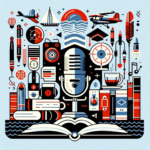

Rising up, breaking away
When science fiction meets reality: four passengers are interviewed just before taking the plunge into the unknown, leaving for another planet. A new departure that questions their attachment to this planet. What can they expect from this great escape?

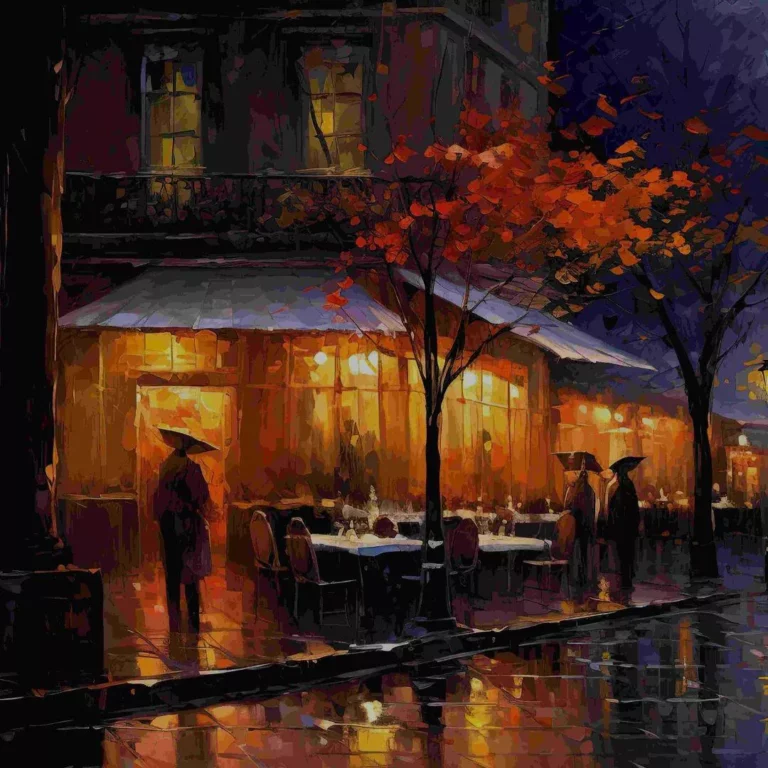
Memory-City, Living-Memory
Justin wasn't born in Paris, but he feels right at home here. Blame it on the memories he's created there, perhaps?


